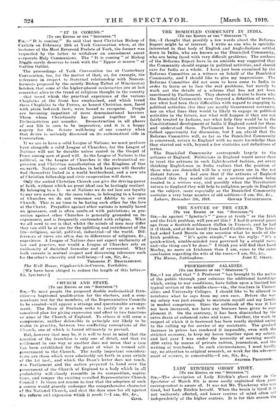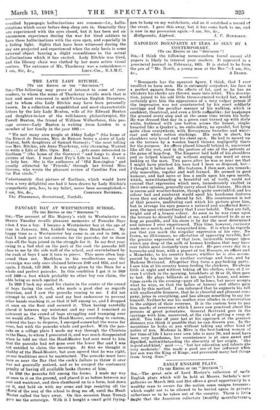LADY RITCHIE'S GHOST STORY.
ITo THE EDITOR or me " Smenroa."1 Sin,—The description of Lady Ritehie's ghost story in the Spectator of March 8th is more easily explained than your correspondent-is aware of. It was not Mr. Thackeray who was tired, but Lady Ritchie herself. When the brain is tired it is not uniformly affected, and lower centres of mind often not independently of the higher centres. It is for this reason Or so-called hypnogogic hallucinations are common—i.e., hallo- cinationa which occur before deep sleep sets in. Generally they aro experienced with the eyes closed, but it has been not an uncommon experience during the war for tired soldiers to have these hallucinations with the eyes open, and especially in s fading light. Sights that have been witnessed during the day are projected and experienced when the only basis is some external'object hearing a slight resemblance to the actual hallucinations which it hos excited. Lady Ritchie was tired, and the library chair was clothed by her more active visual centres. The entrance of Mr. Thackeray was a coincidence.—







































 Previous page
Previous page